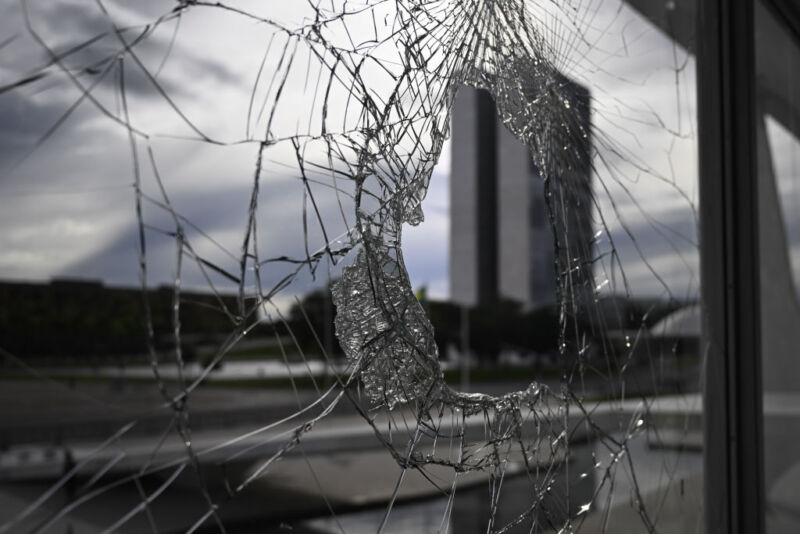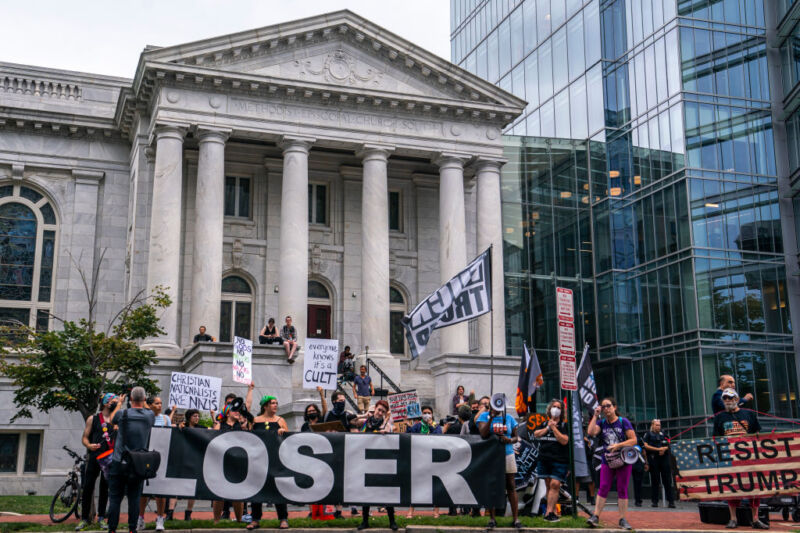-
 chevron_right
chevron_right
Brazil riots trigger widespread content bans on Facebook, YouTube
news.movim.eu / ArsTechnica · Tuesday, 10 January, 2023 - 17:44 · 1 minute

Enlarge / A view of a broken window after the supporters of Brazil's former President Jair Bolsonaro participated in an anti-democratic riot at Planalto Palace in Brasilia, Brazil on January 9, 2023. (credit: Anadolu Agency / Contributor | Anadolu )
Claiming “election interference” in Brazil, thousands of rioters on Sunday broke into government buildings in the nation’s capital, Brasília. The rioters relied on social media and messaging apps to coordinate their attacks and evade government detection, The New York Times reported , following a similar “digital playbook” as those involved in the United States Capitol attacks on January 6, 2021. Now, social media platforms like Facebook and YouTube have begun removing content praising the most recent attacks, Reuters reported , earmarking this latest anti-democratic uprising as another sensitive event requiring widespread content removal.
Disinformation researchers told the Times that Twitter and Telegram played a central role for those involved with organizing the attacks, but Meta apps Facebook and WhatsApp were also used. Twitter has not responded to reports, but a Meta spokesperson told Ars and a Telegram spokesperson told Reuters that the companies have been cooperating with Brazilian authorities to stop content from spreading that could incite further violence. Both digital platforms confirmed an uptick in content moderation efforts starting before the election took place—with many popular social media platforms seemingly bracing for the riots after failing to quickly remove calls to violence during the US Capitol attacks.
“In advance of the election, we designated Brazil as a temporary high-risk location and have been removing content calling for people to take up arms or forcibly invade Congress, the Presidential palace, and other federal buildings,” a Meta spokesperson told Ars. “We're also designating this as a violating event, which means we will remove content that supports or praises these actions.“

